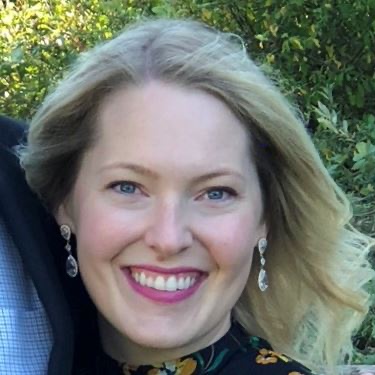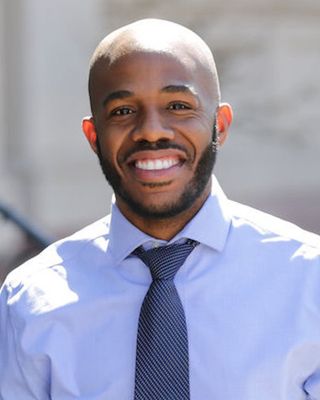You will receive incredibly useful training backed by experience and research from a training team committed to helping the workforce feel skilled in serving this population. They have worked in the field and are passionate about training others. You will explore the knowledge, attitude and skills to perform this important work and increase your effectiveness and perspective. Come learn best practice strategies that can be implemented in your work with individuals experiencing SMI to support recovery!
Staff, leaders and teams can benefit in multiple ways:
Hear our podcast episode with the SPIRIT team discussing this Learning Community series and more by CLICKING HERE

is a clinician and trainer for Cognitive Behavioral Therapy for Psychosis (CBTp) within the UW SPIRIT Lab. She graduated from Arizona State University with a dual major in Psychology and Communication while later completing her MA in Community Counseling at Seattle University. Prior to joining the UW Psychiatry Department, she worked in outpatient mental health at Harborview Medical Center providing CBTp treatment and provider consultation to support individuals experiencing Serious Mental Illness (SMI). She also served on Harborview’s First Episode Psychosis (FEP) team providing early intervention evidence-based treatment to individuals navigating the onset of psychotic disorders. In addition to her focus on
CBTp, she has significant experience delivering evidence-based employment support services which focus on transitioning individuals experiencing SMI back to meaningful community employment. Shannon’s interests involve understanding/addressing how stigma around SMI creates barriers to access, engagement, therapeutic rapport building and ultimately meaningful recovery.

Jeffery Roskelley, LICSW was trained and received consultation in CBTp with the original Washington state cohort in 2015 and provided direct clinical CBTp counseling to clients at Sunrise Mental Health from 2015 to 2018. Jeff graduated from the University of Utah with a Masters of Social Work degree in 2008, and has worked in several different settings including hospice, as a co-occurring assessment specialist at the University of Utah and as a co-occurring specialist for the Lake Whatcom PACT team in Bellingham WA, where he currently resides. Currently Jeff is a trainer and consultant for the University of Washington and in addition to CBTp, he trains WA state PACT teams in integrated dual diagnosis treatment for co-occurring disorders.

Mel LaBelle is currently providing training and consultation for the Cognitive Behavioral Therapy for psychosis (CBTp) project with a focus on CBTp groups. He graduated from Argosy University, Seattle with a Bachelor of Arts in Psychology, and a Master of Arts in Counseling Psychology. Prior to joining the UW Psychiatry Department, he has spent the past 10+ years working in non-profit public health and mental health agencies in the Greater Seattle Area. As a licensed mental health counselor Mel has provided CBTp and other evidence-based therapies to individual clients and groups with a focus on LGBTQIA+ and BIPOC. He has also trained and worked as a mHealth Support Specialist for the University of Washington FOCUS study. Mel’s interests involve using the gestalt of a person’s culture, biosocial history, social support system, and belief structure within group therapy to assist the individual, and other group members, in increased awareness, understanding, and personal efficacy.

Dr. Stephen M. Smith is a Licensed Clinical Psychologist whose professional mission is, and has been, dedicated to advancing health equity for marginalized communities and individuals experiencing mental health concerns. Of particular interest are concerns related to the experience of psychosis. Dr. Smith has trained in the use of recovery-focused approaches to psychosis, including Cognitive Behavioral Therapy for Psychosis (CBTp) and Recovery-Oriented Cognitive Therapy (CT-R). Whether providing direct care or training and supporting other treatment providers, Dr. Smith constantly seeks to expand our understanding of the impact of cultural and structural factors on how we conceptualize and respond to individuals experiencing psychosis. Dr. Smith also has a private practice in which he provides psychotherapy specifically for adult men of color.
The SPIRIT Lab has been providing workforce development to practitioners serving individuals with Serious Mental Illness for more than a decade. Driven by a dedication to advancing recovery for individuals and families affected by psychosis, SPIRIT lab faculty and staff provide training and consultation to an array of behavioral health and allied providers in research-based and culturally informed interventions.
*CONTINUING EDUCATION CREDIT DETAILS: Physicians, physician assistants, primary care ARNPs, psychologists, and other health care providers may be eligible for CME or CEUs for completing the course. Retain your Certificate of Completion and verify its suitability for CME/CEUS with your licensing/credentialing entity. The University of Washington is an approved provider of continuing education for DOH licensed social workers, licensed mental health counselors, licensed marriage and family therapists, psychologists, substance use disorder professionals, nurses and physicians under the provisions of: WAC 246-809-610, WAC 246-809-620,WAC 246-811-200, WAC 246-840-210, WAC 246-919-460 and WAC 246-924-240.